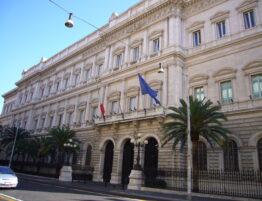
The first dispute was aimed at asserting the unlawfulness of the denials to grant tax credit for research and development activities, set forth by Art. 1, Paragraphs 280-283 Law 27.12.2006, n. 296, following the so called Click Day.
At first, all entrepreneurs who had come to find themselves in the objective conditions laid down by the legislation in question were automatically entitled to tax credit. However, the anti-crisis Decree Law of 29 November 2008, n. 185 changed the relevant requirements, so that tax credit was ensured only to those companies who would make the request through the Revenue Agency’s website, starting from 10 a.m. on 6 May 2009, up to the amount provided for by the Decree.
The race to obtain the tax credit began at 10 o’clock sharp: however, after only 35 seconds the sum made available, 1.62 billion Euros, had already run out.
After the first and second degree proceedings, where -with ups and downs- the plaintiffs were now partially unsuccessful, now victorious, on 12 April 2013 the Corte di Cassazione (the Italian Supreme Court) issued the ruling for one of approximately 300 still pending substantially similar cases (the plaintiffs represented by the Firm before the first degree courts were over 2,000), stating that the question of constitutionality of some paragraphs of the law which introduced the Click Day system -raised in relation to art. 3 of the Constitution- is relevant and not manifestly unfounded. Therefore, the Supreme Court ordered the immediate transmission of the file to the Constitutional Court and the suspension of 46 of the nearly 300 ongoing proceedings, pending the decision of the Constitutional Court.
Although only the abovementioned 46 cases were formally suspended, all the approximately 300 proceedings were in substance suspended, as the Supreme Court never fixed dates for the hearings.
Following the hearing held on 23 September 2014, the Constitutional Court issued ruling no. 236/2014, filed on 16 October 2014, which declared the inadmissibility of the question of constitutionality which had been submitted to it. The reason -slightly captious in our opinion- provided by the Constitutional Court was that the Judges of the Supreme Court, who had actually raised the question of unconstitutionality had not adequately considered the supervening legislation (i.e. art. 2, para. 236 of Law no. 191 of 2009, art. 4, para. 1 of the Decree Law 40 of 2010), or rather its effects, compared to the challenged norm.
The ministerial decree which was adopted (by virtue of the mentioned legislation) on 4 March 2011 stated that the subjects who had not obtained the authorization to use the tax credit due to the exhaustion of the available resources, could use the tax credit up to a maximum of 47.53 percent of the sole credits (for the years 2007-2008-2009), for activities started before 29 November 2008. Therefore, it seems pretty obvious that the supervening legislation did not introduce any important changes for the purposes of constitutionality of the challenged norm, in fact, in some ways, it seems it confirmed its unconstitutionality.
After the ruling of the Constitutional Court, the proceedings continued before the Supreme Court.
After having specifically examined the effects of the supervening legislation compared to the challenged one, the Supreme Court -fully embracing our arguments on unconstitutionality and confirming all the concerns which had been raised- once again noted the question of constitutionality in relation to one of the 300 similar cases, by means of interlocutory order n. 3576/2015 which was filed on 23 February 2015, ordering the immediate transmission of the file to the Constitutional Court and suspending the proceedings pending before the Supreme Court.
(Bologna Office – 0039(0)51 2750020).



